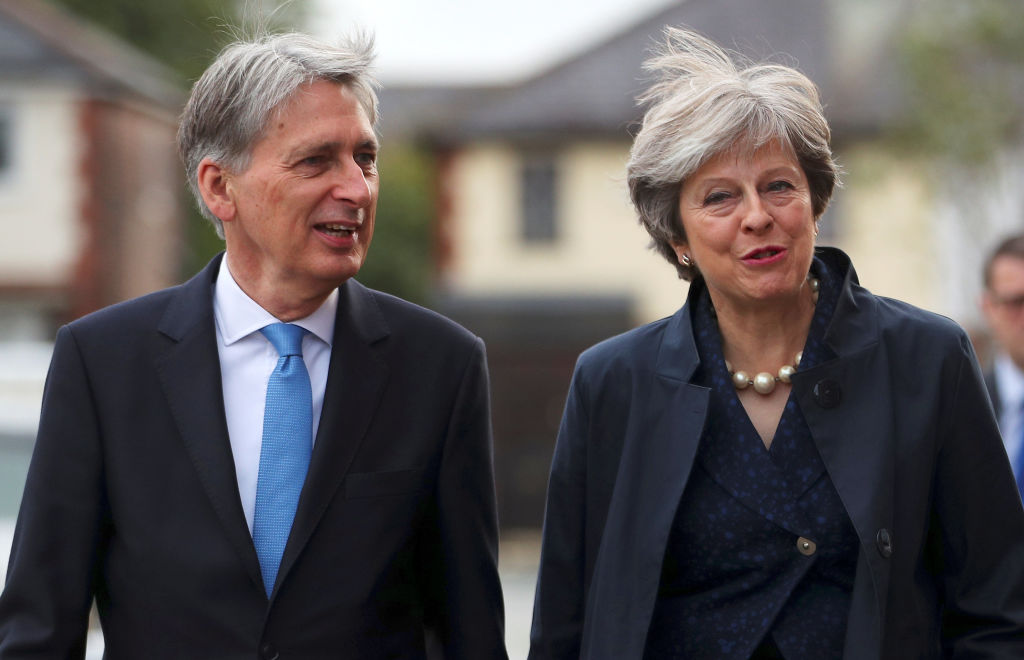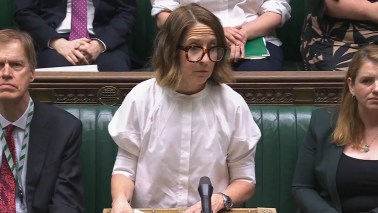Tom Tugendhat, the Tory MP for Tonbridge sometimes called a rising star, finds himself making front page news today as a ‘Brexit mutineer’. That strikes me as a novel term for a man who spent several years in the British Army fighting in Iraq and Afghanistan, but such are the terms of British political debate these days, I suppose.
The MP hasn’t responded to that headline, but used a question at PMQs to talk about something else, which I think is worth a little more attention than the latest round of name-calling over Brexit. Given that Britain’s deficit is well down from crisis levels, and given that gilt auctions are oversubscribed, Mr Tugendhat asked Theresa May, is this not a good time for the government to invest more? In other words, shouldn’t the Tories be borrowing a bit more money and using it to do productive things like build houses and infrastructure?
By asking that question, Mr Tugendhat joins the ranks of Tories making similar suggestions: Sajid Javid and Nick Boles are other public advocates, while other senior folk haven’t – yet – broken cover to say this stuff openly. In short, this argument is gaining ground in Conservative circles. It’s now supported by a Thatcherite Cabinet minister, a Cameroon intellectual and a prominent member of the 2015 intake. The ground is shifting.

Mrs May gave what was essentially a non-answer to Mr Tugendhat, but there are people in No. 10 who are sympathetic to the argument. Yet noises off from HM Treasury suggest that Philip Hammond and his officials are having none of it. They want to stick with the promise of a Budget surplus that has been steadily pushed back from the 2015 that George Osborne first promised to some point well after 2025.
We’ll see the outcome of the vigorous internal debate now underway about this next week at the Budget. I won’t try to guess the outcome, but I should declare my hand here. I support a relaxation of the surplus target: I think the government could borrow a bit more in order to spend on sensible stuff, without significant trouble from the bond markets.
Politically, I think that would be the most sensible move for the Conservatives. Public debate has moved on from the days when George Osborne could successfully use the Greek debt crisis to frame and justify ‘austerity’ policies. Jeremy Corbyn’s gains reflect, in part, his success in channelling public unease about those policies. And in any case, Mrs May effectively abandoned the politics of austerity when she dumped Mr Osborne, ceasing to make the case for fiscal consolidation on a daily basis as the Osborne-Cameron operation did. Having ended the political campaign for austerity, Mrs May might as well end the policy too.
But this isn’t really about politics. It’s about economics, and spending more on capital projects just good economic sense. The root cause of Britain’s economic (and fiscal) troubles is poor productivity, and the only way to increase that is to invest in productive capacity. And if MPs, both mutinous and loyal, devoted even a quarter of the time they spend talking and thinking about Brexit to the job of devising and implementing sensible policies on productivity, Britain’s prospects would be an awful lot brighter – regardless of the sort of Brexit we end up with.







Comments